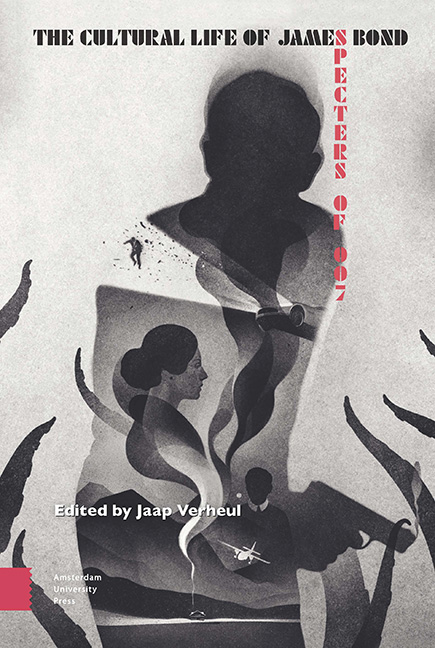Book contents
Introduction: Specters of 007
Published online by Cambridge University Press: 20 November 2020
Summary
The release of No Time To Die (UK/USA: Cary Joji Fukunaga, 2020) heralds the arrival of the twenty-fifth installment in the James Bond film series. Since the release of Dr. No (UK: Terence Young) in 1962, Eon Productions’ first film adaptation of Ian Fleming's already-popular source novels, the cinematic James Bond has expedited the transformation of Fleming's literary creation into an icon of western popular culture that has captivated audiences across the globe by transcending barriers of ideology, nation, empire, gender, race, ethnicity, and generation in spite of its blatantly white, heteronormative, and Eurocentric worldview. The Cultural Life of James Bond: Specters of 007 seeks to untangle the puzzling yet seemingly perpetual allure of the James Bond phenomenon by looking at the non-canonical texts and contexts that encompass the cultural life of James Bond. Chronicling the evolution of the British secret agent over half a century of political, social, and cultural permutations, the fifteen chapters examine the brand of Bond beyond the official Eon film series and across multiple media platforms while simultaneously understanding these ancillary texts and contexts as contested sites of negotiation with the twenty-five features that currently make up the Eon film franchise. In doing so, The Cultural Life of James Bond subscribes to what Christoph Lindner (2010, 1) has termed the “new wave of Bond criticism,” which seeks to move scholarship on James Bond beyond a traditional emphasis on the Ian Fleming novels or the twenty-five Eon films in order to apply a range of methodologies to the interdisciplinary study of the cultural life of James Bond. The volume is thus as much concerned with Bond scholarship as it is with Bond himself.
The Cultural Life of James Bond pursues three strands of inquiry. The first section chronicles the increasingly transnational composition and myriad afterlives of the Eon film series. If 007 has often been understood as Britain's savior in an era of post-imperial decline, and if most of the earlier Eon-entries were produced in the United Kingdom, the franchise gradually transformed itself into a transnational if not global phenomenon, co-produced by different countries, inspiring endless spin-offs across the globe, and celebrating Bond as the quintessential cosmopolitan in order to enhance the character's appeal with international audiences.
- Type
- Chapter
- Information
- The Cultural Life of James BondSpecters of 007, pp. 11 - 22Publisher: Amsterdam University PressPrint publication year: 2020

